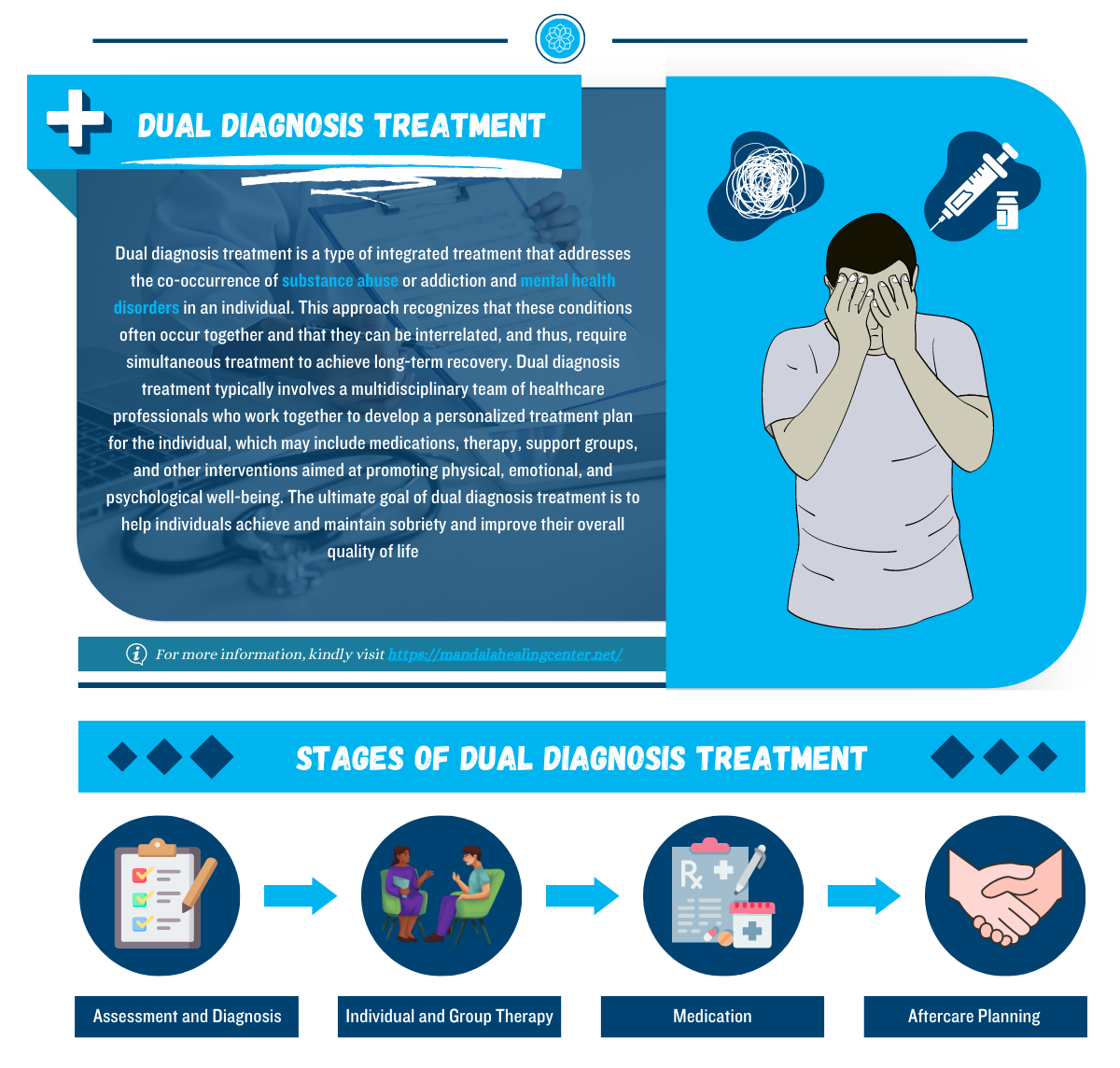
Dual Diagnosis
Most people who suffer from addiction have some unresolved issues in their past that cause them to abuse drugs and alcohol. Sometimes, these unresolved issues are a sign of something greater. In fact, millions of people who have a substance use disorder also have a mental health condition that requires treatment.
According to the Substance Abuse and Mental Health Services Administration (SAMHSA), “approximately 9.2 million adults in the United States have a co-occurring disorder.”[1]
Co-occurring disorders occur when you struggle with addiction and a mental illness at the same time. If you or a loved one have co-occurring disorders, it’s important to seek professional treatment for both conditions at the same time.
Dual diagnosis treatment centers provide comprehensive, individually-tailored treatment targeted at both addictions and mental health conditions.
What are Co-Occurring Disorders?
Co-occurring disorders are mental health conditions and substance use disorders that affect you at the same time. Someone with a co-occurring disorder experiences the symptoms of a psychiatric illness and an addiction concurrently. Any mental health condition can occur at the same time as an addiction.
While any mental illness can co-occur with addiction, these are the most common:[1]
- Anxiety conditions like social anxiety
- Mood disorders like depression
- Bipolar disorder
- Schizophrenia
- Conduct disorders
- Post-traumatic stress disorder (PTSD)
- Attention-deficit hyperactivity disorder (ADHD)
If you find that you are abusing drugs to soothe uncomfortable emotions, mood swings, or unstable behavioral patterns, you might be self-medicating an underlying mental health condition. This is a huge indicator that you are dealing with co-occurring disorders.
When you have co-occurring disorders, you must receive treatment for both conditions simultaneously. If you were to leave one condition untreated, it could cause a relapse in the other. Dual diagnosis programs were created to provide individuals with access to mental health and addiction treatment at the same time.
What to Expect During Dual Diagnosis Treatment
If you are considering attending dual-diagnosis treatment, you might be wondering what to expect. During dual diagnosis rehab, you will have access to an array of therapeutic services. Typically, as you enter one of these programs you will undergo a thorough assessment to determine what mental health condition you have and what types of treatment would most benefit you.
Assessment and Diagnosis
The first step in dual diagnosis treatment is the initial assessment. During this assessment, medical professionals will gather information about your substance abuse, mental health, physical health, and family history. This information will help the doctors create an individualized treatment plan that is suited to your specific needs.
Individual and Group Therapy
Once your treatment plan is created, you will begin participating in individual and group therapy sessions that cater to your condition(s). Therapy is intended to help you learn how to manage addiction triggers, address the root causes of your addiction, and teach you how to effectively manage the symptoms of your mental health condition.
Examples of therapies used during dual diagnosis treatment include:[2]
- Cognitive behavioral therapy (CBT)
- Dialectical behavioral therapy (DBT)
- Motivational interviewing (MI)
- Contingency management (CM)
- The matrix model
- 12-step facilitation therapy
- Family behavior therapy
Most therapy sessions at a dual diagnosis treatment center will be in a group setting. Group therapy involves one therapist who acts as a moderator and discussion leader while you and other patients discuss specific topics relating to addiction and mental health recovery. This type of treatment can be especially beneficial in improving your social skills, lessening feelings of loneliness, and helping you gain new perspectives.
There are broad-topic counseling groups and specialized ones that you might participate in. For example, if you have experienced significant childhood trauma, you might be placed in a trauma counseling group. On the other hand, people with personality disorders might be placed in a counseling group intended to teach them how to manage their specific mental health conditions.
Medication
Many people who struggle with mental health conditions need medications to balance the chemicals in their brains. Whether you suffer from anxiety and depression or a psychotic disorder like schizophrenia, taking medication can make the difference you need to fully focus on learning how to heal.
Common medications used during dual diagnosis rehab include:
- Antidepressants like SSRIs and SNRIs
- Antipsychotics and mood stabilizers
- Sleeping pills
Whether you are given medications will depend on the type of mental health condition you have, what symptoms you experience, and how severe those symptoms affect your daily life..
Aftercare Planning
The last step in dual diagnosis treatment is aftercare planning. This stage of treatment focuses on providing you with all of the tools and support you need to maintain sobriety and recovery outside of the facility. Transitioning back into everyday life can be difficult, which is why aftercare planning is such a vital aspect of recovery from co-occurring disorders.
Aftercare plans often include the following:
- Continued attendance at therapy
- Continued medication management
- Access to alumni support groups
- A list of triggers and coping mechanisms to use
- Sober supports to call in times of need
- Referrals to sober living housing programs
- Recommendations on support groups to attend
- Vocational training and legal assistance
Start Dual Diagnosis Treatment in Florida Today
If you or a loved one struggle with a co-occurring disorder, it’s time to seek professional help. Dual diagnosis programs like Mandala Healing Center can provide you with addiction and mental health treatment simultaneously, ensuring that you will receive everything you need to regain control over your life.
To learn more about our dual diagnosis rehab programs or to speak with an admissions counselor, please contact Mandala Healing Center today.
References:
- Substance Abuse and Mental Health Services Administration (SAMHSA): Co-Occurring Disorders and Other Health Conditions, Retrieved June 2023 From https://www.samhsa.gov/medications-substance-use-disorders/medications-counseling-related-conditions/co-occurring-disorders
- American Psychological Association (APA): Evidence-Based Behavioral Treatments for Substance Use Disorders, Retrieved June 2023 From https://psycnet.apa.org/record/2018-18838-010

